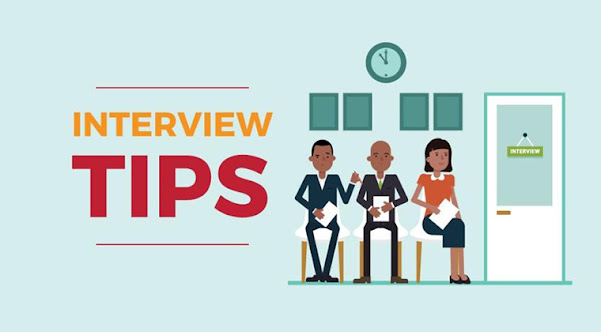Tips for a Successful Interview
Your interviewer's perception of you may be more important than your actual qualifications. Along with your experience and education, your composure, attitude, fundamental social skills, and communication abilities are tested or judged by interviewer. You and the interviewer must have a conversation in which information and opinions are shared. You will be hired only if you, the company, and the job are a good fit through such a conversation.
Be on Time
Typically, this means arriving 15 to 20 minutes early.Interviewers are frequently prepared before the scheduled time
You should know the interviewer's name
During the interview, use it. Call ahead and ask the secretary if you don't know the name. Keep the secretary's name in mind in case you need to call again. The hiring choice may be influenced by secretaries!
Prepare your own questions in advance
There is nothing wrong with having a concise list of inquiries and ideas; it demonstrates that you have done your homework and are interested in learning more about the company and the position.
Carry multiple copies of your resume
Bring a copy of your transcript along as well. Keep your paperwork organised and carry them with you.
Have small notepad & pen with you.
However, don't note down anything during the interview. But as soon as possible afterward, note down all you can remember, including your assessment of how well you performed.
Greet the interviewer with a handshake and a smile.
Maintain eye contact but it does not mean a stare down.
Expect to take some time to establish a rapport.
Don't dive in headfirst and start working. obey the interviewer's instructions.
In case you are anxious, don't feel bad about it.
You'll feel more comfortable with the interviewing process as you gain experience.
Focus
Don't apologise for a lack of experience; instead, emphasise your qualities, transferable skills, and willingness to learn. Describe your strengths in terms of what they can achieve for the organisation.
Tell the reality.
Lies and exaggerations will haunt you in the end.
Pay close attention to the interviewer.
Make sure you comprehend the question; if not, get clarification or rephrase it. Give a thorough response. Stick to the subject at hand.
Show Loyalty
The employer places a high value on loyalty towards your work & organisation.
Observe your grammar
Employers are looking for employees with good communication skills.
Be ready for personal questions.
Some interviewers might not be aware of the legal questions they can and cannot ask. Consider how you will respond to such inquiries without becoming upset.
Await the interviewer to bring up Salary compensation and perks.
Get salary details on the Career Services website of the company and in the career library to learn more about pay scales.
At the initial interview, don't expect receiving a job offer.
Before an offer is made : a few weeks later, you can frequently invited to a second or even third interview.
Finally, be enthusiastic and upbeat.
Ask what will happen after that. Express your interest in the job and thank the interviewer for their time. Shake hands, smile, and depart politely and swiftly.
No interview is complete unless you follow up & send a thank-you note afterward.
Thank them for the interview and, if accurate, reiterate your interest. This final step can have an impact. Don't overlook it.



.jpg)
Comments
Post a Comment